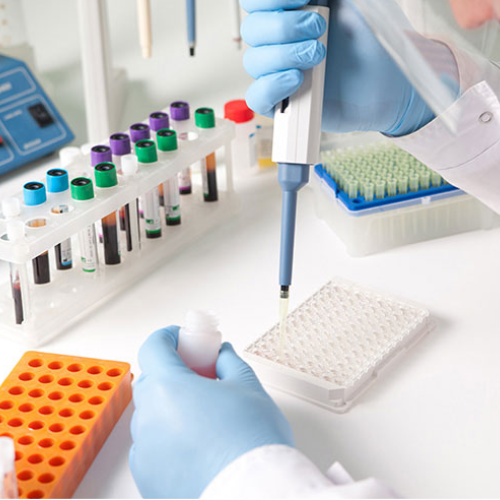PCR for Hepatitis B
PCR for Hepatitis B
- PCR for Hepatitis B test is done at Maurya Labs Punrea, Bihar using most advanced RTPCR technology for estimating the load of hepatitis B virus in the blood
- No special preparation is required for PCR for Hepatitis B
- PCR for Hepatitis B test is useful to detect mutant Hepatitis B Virus which are negative for hepatitis B surface antigen
What is PCR for Hepatitis B for viral load?
Hepatitis B virus is one of the most common cause of chronic liver disease worldwide. HBV is a DNA virus that is transmitted primarily through blood exposure and sexual contact and from mothers to their children.
HBV DNA PCR quantitative is a laboratory test that uses polymerase chain reaction (PCR) technology to measure the amount of hepatitis B virus (HBV) DNA in a blood sample. The test provides a quantitative measurement of the viral load, which is useful for monitoring disease progression and determining the effectiveness of antiviral therapy.

Reported Parameters
- Normal range for this assay is “Not Detected”
- The quantitative range of this assay is 1.00-9.00 log IU/mL (10-1,000,000,000 IU/mL)
All The Questions that you might have
- What is PCR for Hepatitis B Viral Load Test ?
- What does the PCR HBV /Hepatitis B viral load test measure?
- Why should I do the PCR HBV /Hepatitis B viral load test?
- How is the PCR HBV /Hepatitis B viral load test done?
Hepatitis B virus is one of the most common cause of chronic liver disease worldwide. HBV is a DNA virus that is transmitted primarily through blood exposure and sexual contact and from mothers to their children.
HBV DNA PCR quantitative is a laboratory test that uses polymerase chain reaction (PCR) technology to measure the amount of hepatitis B virus (HBV) DNA in a blood sample. The test provides a quantitative measurement of the viral load, which is useful for monitoring disease progression and determining the effectiveness of antiviral therapy.
The test provides a quantitative measurement of the viral load, which is useful for monitoring disease progression and determining the effectiveness of antiviral therapy.
Your doctor may advise you for a HBC PCR test if you have following symptoms:
- Pain in the abdomen
- The darker color of urine than usual
- Weakness and getting tired easily
- Fever
- Pain in the joints
- Loss of appetite
- Jaundice
- Nausea or Vomiting
The HbA1c test is a simple blood test with no need for fasting before the test. The blood sample can be taken by the phlebotomist at a pathology lab.







